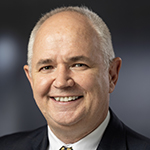‘Retirement is coming’ might have been a good subtitle for the recent thematic review of the implementation of the retirement income covenant by APRA and ASIC. In looking at how super funds have responded to the retirement income covenant, they have noted a range in how prepared funds are for their members in and approaching retirement. Some funds are better prepared, while others are far less ready for the wave of retirees on the horizon.
The thematic review found a lack of progress and insufficient urgency among some super funds in looking to improve members’ retirement outcomes – a bit like the (fictional) Starks warning everyone that winter is coming and to set their own preparations. The lack of urgency is understandable to a degree. Funds will no doubt agree that delivering a better retirement outcome for members is important, however the super system is still maturing and there is a continual stream of more pressing issues, such as fund performance tests, that need to be addressed immediately.
One promising aspect of the review is that progress is being made. APRA and ASIC highlight case studies and better practices drawn from the proactive work of some super funds that are starting to take the lead in delivering better outcomes for members in retirement.
Retirement is more than a good product
The themes of the review emphasise how funds need more than a good retirement product, with the report highlighting three key aspects to the best practice emerging for retirement outcomes:
- Know
- Build
- Guide
Firstly, there is a need to Know the member in retirement. Goals in the accumulation phase are about building wealth for retirement and are generally common so funds can treat members in a similar way. In retirement, members are different. Whether or not they are married or own their home makes a big difference to a member’s retirement outcome, for example.
To deliver the best outcome for members, funds need to know more about them than while simply investing members’ contributions. Progress is being made; recent activity from certain super funds shows they are keen to understand their members better. Further, the Government’s response to Michelle Levy’s Quality of Advice Review is also promising, potentially making it easier for funds to get more information about members to help with the retirement challenge.
Importantly, we must remember that members’ circumstances change over time, and while these won’t be uniform for every retiree, funds can be prepared for these changes. One of the better practices called out in the review is the ability of funds to develop modelling of retiree behaviour. This will also help with designing the right solutions.
Once funds understand their members, they need to Build the right retirement income solutions. This is about having an offer that is fit for purpose for each member, while also recognising their differences. It is likely that a range of options will be needed, with all the options made available to members (even if the fund needs external help to achieve this). These options should be based on the knowledge of the member base as a first step. Two different members might require a different option to meet their individual retirement needs. The information gathered on for example, home ownership, other financial assets and age pension access can inform the fund about what might be suitable across their member base.
The final key aspect to best practice for improved member outcomes is for funds to Guide their members. This will need a range of education and/or advice strategies to assist members to recognise the solution that works for them. Not every retiree knows the right path to take at the beginning. Good leadership and communication can point them in the right direction, so they achieve their retirement goals. If the response to the Quality of Advice Review follows its current path, this could support funds providing more advice to their members. Even before it goes this far, funds can provide education on how different retirement options could assist their members.
Having a good governance structure including metrics on performance will be key to succeeding – and one area noted as needing development. Currently, there aren’t good metrics on measuring retirement success, but super funds know it involves more than just achieving good investment performance. This is the retirement challenge.
Most importantly, funds need to complete all three steps. It is not enough to just understand the member, they need an income solution that is fit for purpose in retirement. Similarly finding the world’s greatest retirement solution will not help if it doesn’t align with member needs and there is no guidance on how to use it effectively.
The outcome of the APRA and ASIC joint review is a positive step forward. Better retirement outcomes are coming, many funds are clearly making good progress – but there is still a lot to do. With the ability to leverage innovations across the industry, super funds can deliver better outcomes for members for the approaching wave of retirees.









